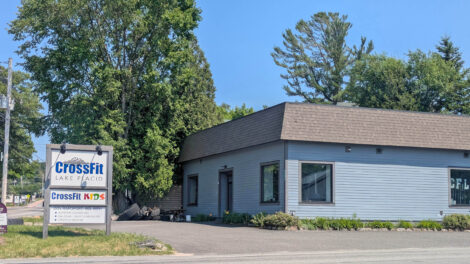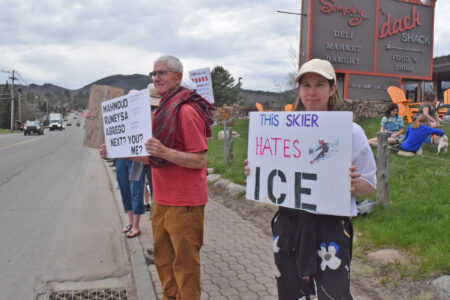U.S.-Canada border may stay shut longer
North Country officials bemoan extended closure
The border between the U.S. and Canada may remain closed through Thanksgiving, anonymous sources with direct knowledge of the situation told two Canadian news outlets, CBC News and Reuters Canada, on Tuesday.
Since March, border crossings between the two countries have been limited to essential travel only, with exceptions for some things such as trade. These limits have been extended one month at a time, and the latest temporary ban on non-essential crossings is set to expire on Sept. 21. Sources have told the two Canadian news outlets that it could be extended to anywhere from Oct. 21 to American Thanksgiving on Nov. 26. Other sources told the news outlets that Canadians should expect the border to be closed for the “foreseeable future.”
Compared with August 2019, American visits to Canada by car declined by more than 95% last month, according to Statistics Canada, Canada’s national statistical agency.
Canadian officials have been hesitant to remove the travel restrictions because of the large number of COVID-19 cases in the United States.
Canada’s Public Health Agency reported 793 new confirmed cases of COVID-19 and nine deaths from COVID-19 across the country on Tuesday. In the United States, there were at least 1,281 COVID-19-related deaths reported on Tuesday as well as 39,221 new cases of the disease.
North Country business and elected officials railed against the decision to keep the U.S.-Canada border closed.
The North Country Chamber of Commerce, based in Plattsburgh, announced in a news release on Wednesday that it had received confirmation from Canadian government officials that the border restrictions would be extended to Oct. 21.
The chamber decried the decision, citing its impact on “cross border commuters such as hundreds of Canadian nurses and health care professionals who work in New York, truck drivers, emergency personnel and a few other limited purposes.” In the northern-most towns of Clinton County, Canadian first responders such as firefighters sometimes pitch in when serious fires break out and local departments need help.
“As with the last few extensions, we wholly expected this latest action, so it is not a surprise,” chamber President Garry Douglas said in a statement. “But it’s time to once again cue the crickets in both federal governments as they continue to ignore reasonable calls for a reopening plan with metrics and a decision making process, as well as a call to at least study and consider a number of modest interim measures that have been suggested, such as expanded family connections, the visitation of property within 50 or 100 miles of the border and some added forms of business related travel such as site visits.
“Continuing to treat a policy action that is so extremely impactful on one of the most important bi-national economic and social connections on Earth with such a lack of dialogue and planning is, as we have said before, a case of enormous public policy malpractice.”
Douglas said the chamber will remain “actively engaged” with the Northern Border Caucus in Congress, which is co-chaired by Rep. Elise Stefanik, a Republican from Schuylerville whose district includes the North Country, and Rep. Brian Higgins, D-Buffalo, as well as the chamber’s “other partners in both countries” to continue calling for a response to their calls for a measured border reopening.
Stefanik has repeatedly called for a phased reopening of the border, noting that COVID-19 cases in the North Country region are low. She has publicly asked Canadian officials to continue working with the U.S. on a border reopening.
“I remain committed to working on a bipartisan basis with officials at the U.S. Department of Homeland Security and the Canadian government to establish a safe, phased-in reopening of our northern border,” Stefanik said in a statement Wednesday. “Our North Country economy continues to feel the effects of the continued non-essential border closure, and I continue to hear important feedback from residents, business owners, local elected officials, and stakeholders who are concerned about this issue. Both the U.S. and Canadian governments must come together and consider steps to safely re-open our border and ease the burden for the communities they support. As co-chair of the Bipartisan Northern Border Caucus, I will continue to work with my colleagues in Congress, the White House and the Canadian government to find a viable solution to end these 30-day extensions.”
State Assemblyman Billy Jones, D-Chateaugay Lake, expressed disappointment over the decision in a statement Wednesday.
“With infection rates remaining low across our region, this decision seems harsh to all who have worked so hard to stop the spread of COVID-19,” he said. “Businesses across my district are hurting because of the lack of Canadian clientele, and residents on both sides of the border continue to miss their loved ones. It is unfair that the North Country is punished for higher infection rates in other parts of the United States, and I will continue to call on our federal partners to loosen restrictions for safe border crossings.”




